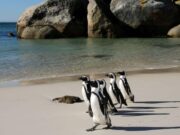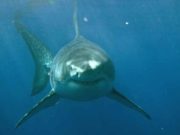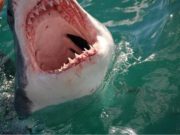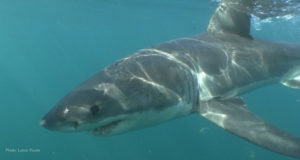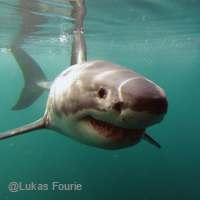Science
Are you a responsible wildlife traveler?
Unfortunately there is no single, globally accepted code of conduct for responsible wildlife tourism – travelers themselves need to take responsibility. Here are some guidelines.
1 Take...
How do remoras stick to their host?
Remoras, also known as sharksuckers or suckerfish, are famous for their ability to hitch rides on larger fish and marine mammals by means...
Menopausal Moms: A Mammal Mystery
Ocean-going mothers everywhere deserves a special salute.They give birth well into their twilight years while human females call it quits 40 years earlier.In...
Abalone- mollusk we will soon only see on a postcard
The South African abalone, Haliotis midae, is one of the largest molluscs on earth, attaining a weight of nearly 2kg and a ripe...
Cone Snail Venom Could Inspire Fast-Acting Insulin For Diabetes
Forget slow and steady. For the cone snail, it’s fast-acting chemistry that wins the race. Researchers have now shed light on the structure...
Marine Tourism
Sharks have cavity-proof teeth
Shark teeth are covered in fluoride, making them cavity-resistant. One 2012 study published in the Journal of Structural Biology found that sharks' enamel...
Red Tide, Blue Tide: Bioluminescence in the Ocean
Red tides, which often contain harmful algal blooms , are caused by chemical reactions that occur between algae and other substances.
Red by day, blue...
How Acacia Trees Prevent Elephant Attacks: With Armies of Ants
It’s a classic David and Goliath story, except there are 90,000 Davids and they all have stings. On the African plains, the whistling-thorn...
Antifreeze Fish
Did you know there are fish whose bodies contain antifreeze, like the stuff that keeps a car’s cooling water from freezing? Many kinds...
Beachcomber for a day
One of the chief delights of living on the whale coast is that there is always an excuse to go rambling along the...
